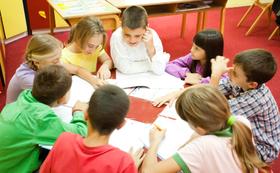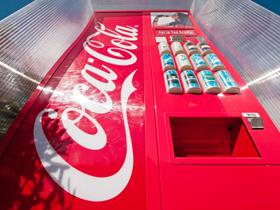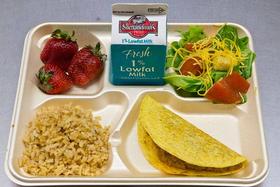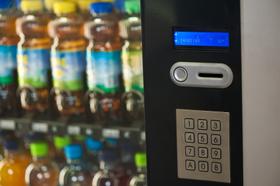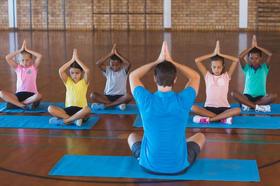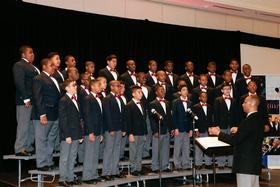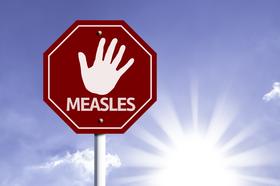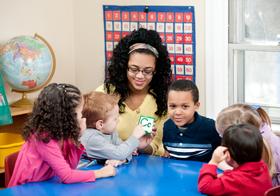Bake sales are a longstanding tradition at public schools. Parents and students use them to raise money for special field trips, sports equipment, and other luxuries that tight school budgets cannot afford. However, a new rule in New York City’s public schools is attempting to reduce the number of bake sales, prompting outrage from fans of this American tradition.
This video describes how in an effort to "fail" childhood obesity, schools across the nation are banning bake sales. And they're taking away not only the sweet treats, but fundraising money.
New Rule Limits Sales of Homemade Baked Goods in Schools
As the New York Times reports, New York City’s public schools have adopted a new rule which allows PTAs to hold fundraisers that include homemade baked goods only “once a month or weekdays after 6pm.”
PTAs and other school organizations can still hold fundraisers at other times, but they cannot sell homemade baked goods at these fundraisers. Instead, they may sell fresh fruits and vegetables or items selected from a list of 27 packaged foods that meet the New York City health department’s standards for calories, fat, and sodium.
The new rule is part of a larger effort on the part of New York City’s Department of Education to reduce obesity among the city’s public school students. Eric Goldstein, chief executive of School Food and Transportation for the New York City Department of Education, tells the New York Times that 40 percent of the 1.1 million students in the city’s public schools are overweight or obese.
The city has already taken steps to address the student weight problem by changing the food available in public school vending machines to feature items that are lower in calories, fat, and sodium. The new rule regarding bake sales is the next step in the anti-obesity campaign, driven by the idea that student health and weight will improve if students have access to information about the nutritional content of the foods they buy.
In this video Mark Levin talks with somebody that had school bake sales banned in the Food Safety Act
According to the Times, the Department of Education has suggested that school groups try to move towards fundraising efforts that do not revolve around food. The Department suggests that rather than selling food, public school fundraising groups try selling:
- Apparel: T-shirts, shoelaces, or handmade jewelry
- School Supplies: Pencils and notebooks
- Exercise: The Department suggests that buyers could pay for students to run laps around a track or park.
Bake Sale Supporters Protest: Homemade Foods Beat Packaged Items
The new rule has given rise to an outcry among many parents of NYC public school students. Bake sale supporters feel so strongly that they are planning to stage a “bake-in” at City Hall in hopes of convincing city officials to overturn the new rules.
Bake-sale supporters are wary of the new guidelines for a number of reasons.
Bake Sales Help Raise Much-Needed Money
In days of increasingly tight public education budgets, bake sale fundraisers are important, supporters say, for helping students raise enough money for field trips and other educationally enriching experiences.
Geraldine Neary, a NYC public school parent and past president of the PTA, asserts that a lot of parents at her school don’t have money, but are able to contribute to fundraising efforts by donating baked goods to bake sales. At Neary’s school, 60 percent of students’ families meet the federal poverty standard, but the weekly bake sales earn between $200 and $300. Money from bake sales has given students the opportunity to attend a summer nature camp in the Adirondacks and to travel to Mayan ruins in Mexico.
The assistant principal at the La Guardia High School told the Times in October 2009 that bake sales are “definitely a way kids count on to get money.”
New Rule Seems to Favor Processed Over Homemade Food
Parents and food historians are also concerned that the new rule will encourage students to favor processed foods over homemade items.
Laura Shapiro, a food historian and author, finds the city’s reasoning problematic. Shapiro says that said the city’s argument reflects a larger cultural trend in which Americans “accept a kind of distance between themselves and food.”
This video makes the point that the government will dictate what is best for you and your family.
After the American food industry emerged as a corporate force in the early 20th century, Shapiro says, Americans began to distrust food that didn’t come packaged with a nutrition label. Shapiro is critical of the city’s thinking, which seems to believe that “a packaged chocolate-chip cookie is preferable to a homemade one, not on the basis of taste, texture or the quality of the ingredients, but because it came from a factory and has a nutrition label.”
Pushing Processed Foods Over Homemade Food May Contribute to Obesity Problem
Some parents say that encouraging students to see processed food as superior to home-baked goods will actually encourage obesity. A petition created by the grassroots parents’ organization NYC Green Schools asks the New York City mayor and public school chancellor to repeal the bake sale ban, arguing that “this regulation will do nothing to fight childhood obesity and only succeeds in teaching our children that junk food is healthier for them than foods cooked at home, a policy that will only end up encouraging a lifetime of bad eating habits.”
It remains to be seen whether students and parents will be successful in their campaign to get New York City to repeal its new anti-bake-sale rule. But urban school districts across the United States should keep an eye as the debate unfolds, as their cities may soon also decide to take aim at bake sales.
Questions? Contact us on FAcebook. @publicschoolreview




















